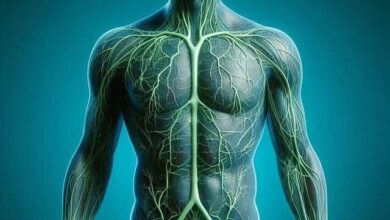Sleep Hygiene: 8 Tips and Tricks for Ultimate Quality Sleep
Sleep Hygiene

Introduction
Sleep hygiene is an umbrella term which entails ways to make you sleep in a better way. Sleep hygiene focused on certain changes in routines and life styles to better have a sleep on right times for better mental and physical health. Sleep hygiene emphasize upon stable sleep routine patterns, bed room settings, adequate lighting for uninterrupted and stable sleep.

Sleep hygiene is basically a combination of healthy sleep habits like sleep early and wake up early as well. The exercise in the morning and healthy diet intake also contribute in healthy and better sleep.
According to certain research estimates, about 50-70 million people in US are facing sleep disorders due to not following sleep hygiene practices. About 9-15% of US adults are confronting from insomnia. The researchers also reveal that women are 40% for likelihood to develop sleep disorders than men. Furthermore, sleep disorder during pregnancy may leads towards premature birth with 33.9% chances.
The survey reports further reveal that about 32% people use to snore and further diagnosed with sleep apnea. The people with Irritable bowel syndrome problem have 37.6% more likelihood of sleep disorders. About 22.4% adults sleep walks and 7.6% people are developed sleep paralysis due to unhealthy sleep patterns and absence of sleep hygiene.
Almost 20% of Americans report difficulty falling asleep, and or staying asleep. Of those, about 10% describe it as a serious problem. Often sleep can be improved by simple changes to sleep wake patterns and practices.
Why Sleep Hygiene is Important?
Sleep hygiene is important for the mental and physical health and also contribute towards the overall well being. Sleep hygiene have significant influence on our metabolic and other body functions as well. Disruptive sleep routine, unhealthy eating before bedtime, working life partners in different shifts, cell phone usage and absence of sleep schedules make the situation worse and cause sleeping problems.
Inadequate sleep and disturbed sleep routines may leads towards sleep disorders and other mental and psychological problems. Insomnia, sleep apnea or other sleep disorders may be the outcome of absence of sleep hygiene practices.
8 Tips for Better Sleep Hygiene
Sleep hygiene is extremely important to ensure better, comfortable and uninterrupted sleep. There are some tips to improve sleep hygiene.
Change Your Brain
So sleep is essential for good mental health. Lack of sleep can actually cause mental illness. It’s evident through research findings that better sleep helps in minimizing depression. One study of people with depression found that after resolving their insomnia 87% of them experienced major improvements in their depression and depression signs vanish in 8 months of good sleep. So, how do we improve our ability to get sleep?
We can train our brain to sleep better. Sleep hygiene is basically a routine which directs human body and brain to sleep. Human brain is able to be tamed. So one can train the brain to work under certain routine patterns and make a plan to better sleep. It involves human brain’s central nervous system. So, start by creating a wind down routine before bedtime that the brain associates with sleeping.
In short, the quantity and the quality of optimized sleep could be enhancing through mental modeling. Make up healthy routines and device sleep patterns for better sleep.
Keep a Consistent Schedule
Our bodies are designed to be synchronized to the daily cycles of sunlight and darkness.
It is important to get up about the same time each day, even on the weekends, to help your body maintain a daily rhythm that is tune with the 24 hour light-dark cycle. Because exposure to light in the morning is so important for synchronization, sleeping in too long on your days off can cause your internal body rhythms to drift.
Try to go to bed and wake up around the same time each day. For better sleep dim lights or dark curtains play important role. So for example, do quiet activities like reading a book or taking a bath because these help trigger calm.
Anxiety over Insomnia
It is normal for some nights to be better for sleep than others and to have an occasional night with insomnia. Lying in bed worrying about whether or not you’re getting enough sleep will only make matters worse.
If you are unable to fall asleep, get out of bed and do some quiet activity, such as reading until you are sleepy. Then go back to bed, eventually sleep will overtake.
Limit Your Naps
Apart from routines there are other ways to get ample, quality sleep. First of the most is to avoid a nap of more than half an hour. Longer naps may disturb the night sleep and also disrupt schedule settings. Cut out Limit your naps to less than 30 min screen time before bed, so not only are devices like phones and tablets and TVs very stimulating but also the light of screen may disturb sleep and make the human active.
Most adults cannot sleep more than seven or eight hours per 24 hour period. If you nap during the day, it is subtracted from your nighttime sleep. A short nap is harmless for most people, and may be refreshing. However, naps lasting longer than 30 minutes may cause you to wake up feeling groggy.
Research shows that blue toned lights tend to trigger alertness and red or yellow toned lights tend to trigger calmness. Try to set cell phone night setting on.
Avoid Caffeine
If you must use your phone before bed be stressful like the news or even your face book feed. Another thing you want to do is take a look at your caffeine use. Avoid caffeine for at least
4 to 6 hours before bedtime. The researches suggest that one cup of coffee disturb the 48 hours sleep. One could test it by avoiding or abstaining from coffee for a week or so to find out the adverse effects of coffee.
In initial few days, one could feel down and restless and lack of energy but later on after couple of days energy will be restored and the person dependent upon caffeine will recommend to leave coffee for more active life.
Limit Alcohol Consumption
Another thing you want to think about is limiting alcohol use.
Alcohol use not only detrimental for sleep but also dangerous for overall health and well being. Alcohol may adversely affect digestive system, immune system, psychological system and also pose threats for others. Despite considering such facts , most of the people not ready to abstain from drinking alcohol owing to certain self constructed believes of status or due to bad company. Whatsoever the reasons are, alcohol is detrimental and must be avoided to live a happy and healthy life.
Avoid Fatty Foods Intake before Sleep
A thing which disturbs a lot during a night sleep is heart burn or acidity. Such situation arises due to intake of fatty and oily foods like junk foods. Such meal before sleep cause indigestion and disturbs ph level of stomach which ultimately disturb sleep.
If the eating is that important at night before sleep, then one could eat banana, apple or drink one glass of warm milk. Such diet will sooth your stomach and avoids heart burning. In addition to think , fruits will provide anti oxidants which ultimately helps in digestion process. On the other hand milk provides calcium which also renders essential calcium for bone and teeth.
Nowadays the trend of outdoor meals and junk foods is extremely detrimental for health. It poses serious threats to whole body of human. Long term bad meal eating practices may develop serious health issues. Therefore, fatty food intake must be avoided at any cost.
In short healthy diet also plays a vital role in better sleep.
Exercise in the Morning and Meditations
The early morning exercise could assist a person to remain active and healthy throughout the day and sleep well at night. It puts an extra energy and due to exercise loose extra calories. Both are beneficial for good health and fitness.
About 10 minutes walk will turn you active and enthusiastic. Apart from importance of exercise one could get ample benefits from other stress releasing practices like meditations and yoga.
Physical fitness role is inevitable in overall well being. The routine of exercise, yoga or meditations plays a vital role in physical fitness and well being.
Conclusions
Sleep hygiene is basically a combination of various healthy sleep routines and practices which cindered important to ensure restful and comfortable sleep. These routines are inevitable for physical and mental health and well being. The optimal sleep hygiene requires stable sleep schedules, comfortable bedroom settings, proper lighting and curtains, comforters, healthy room temperatures and avoidance of caffeine, nicotine and alcohols before sleep.
Furthermore, reducing cell phone use before sleep, readings, meditations and regular exercise also contribute in better sleep regime. Better sleep not only help in refreshing night sleep but also results in refreshing mornings which ultimately improves mental and physical health.
FAQs
What is Sleep Hygiene?
Sleep hygiene focused on certain changes in routines and life styles to better have a sleep on right times for better mental and physical health.
Why sleep hygiene is important?
It is important for mental and physical well being.
How to avoid sleep distortions?
Maintaining the sleep supportive environment. Avoid cell phone use, avoid fatty meals, avoid late night hangouts and make room dark and ventilated






